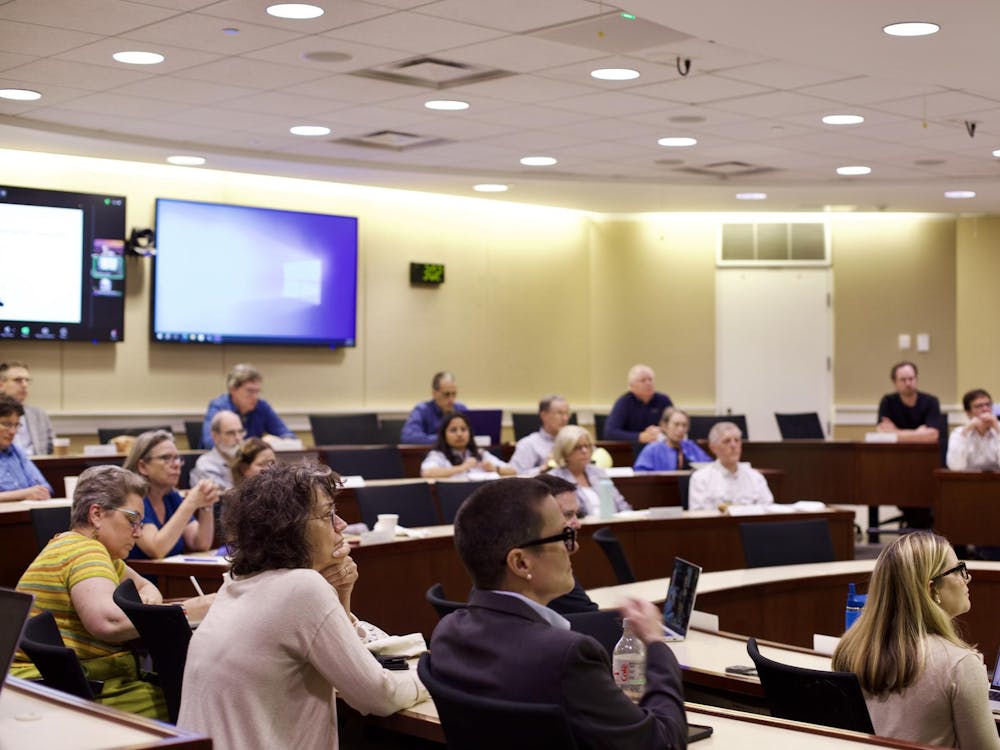Recent anthrax scares and the threat of bioterrorism were among the many issues addressed yesterday at Brown College on Monroe Hill by Dr. Francis S. Collins, the director of the National Human Genome Research Institute, which mapped the human genomein the summer of 2000.
Collins dispelled the myth that terrorists could develop a chemical to kill people in certain ethnic groups.
The lines between ethnic groups are not divided specifically enough for someone to make a chemical weapon to destroy one single ethnic group, Collins said.
Collins is no stranger to the speakers' circuit since his discovery of the human genome map.
Collins has spoken before the president, Congress and numerous international audiences about the science of the human genome project, ethical issues in genetics and his own academic background and Christian faith.
Yesterday at Brown College on Monroe Hill, he discussed the same issues with two groups of students from Carl Trindle's Brown College Great Books class and Trindle's University seminar titled "Human Genome Project and Implications."
"Life can be pretty unpredictable," said Collins, answering one of the first questions concerning the path he took which lead to a Ph.D., M.D. and work with the genome project.
Collins majored in chemistry at the University and also took a class in biochemistry while in the Ph.D. program for chemistry at Yale. This class opened up a new world for Collins, who previously had planned on studying chemistry throughout school.
"Biochemistry completely knocked my socks off," Collins said. He henceforth decided to pursue medical school.
"Do not be fearful of altering your life course," Collins advised students.
Collins said he has sought to deal with the ethical implications of the human genome project.
"I spent several weeks at the White House when President Clinton was considering signing an executive order" to protect federal workers from genetic discrimination, Collins said. Clinton signed the order in February 2000, and Collins supported Clinton's decision.
Conversation shifted from the ethical spectrum of genetics to Collins' Christian faith when a USEM student asked Collins to comment on his strong religious beliefs.
"As a medical student I wanted to convince myself that the negative views I held about faith were justified," Collins said. However, in seeking to rationalize atheism, Collins said he found there was more evidence for believing in God than against it, and subsequently became a Christian.
"There is a portrayal that being a Christian and being scientific are incompatible, and that's not the case," Collins said.






